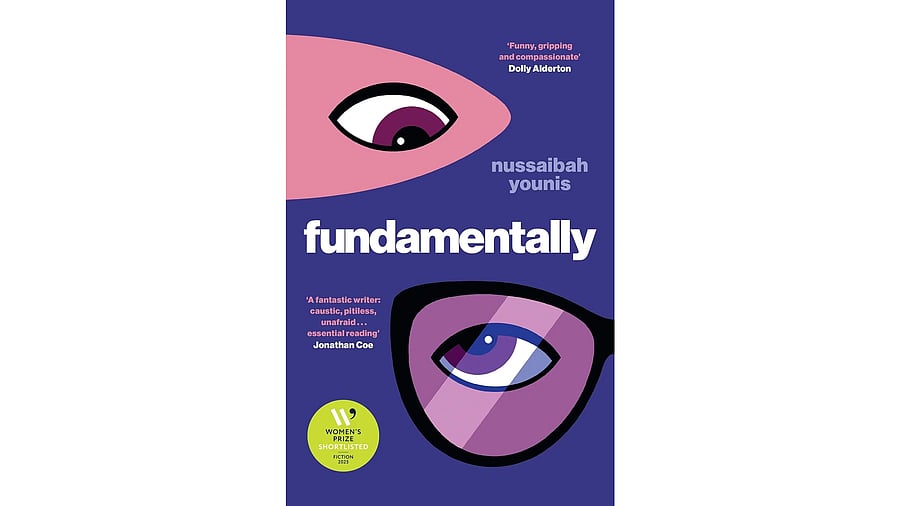
Fundamentally
Let’s talk about the author first. Dr Nussaibah Younis, who studied at Oxford, Durham and Harvard, and has a PhD in International Affairs, is a peacebuilding practitioner and an Iraq expert. At one time, she advised the Iraqi government on programmes to deradicalise women affiliated with ISIS.
Now, let’s talk about her debut work of fiction, titled Fundamentally, which was on the shortlist for the 2025 Women’s Prize. The novel is a wicked piece of satire rooted in reality, using humour to deliver some sharp jabs on how aid agencies (in this novel, the holies of holies, the United Nations) set up projects without much thought or due diligence, and then go about the job in ham-handed fashion.
Younis’ protagonist Dr Nadia Amin, a British Muslim, is an advisor to the UN in Iraq, currently leading a programme (whimsically named UNDO) to deradicalise ‘ISIS brides’. Out there, first in Baghdad, then in the camp where the women are held, Nadia quickly realises she has bitten off more than she can chew. Her team is a laconic, not too invested duo, at least in the beginning; the strategy planning is near nil; there’s really been no outreach to the sullen, suspicious women ‘affiliated’ to the ISIS huddled in the camps with no real hope of repatriation; there’s major politics in the workplace with the aid workers mostly jaded, corrupt, condescending.
Not a deep look
Nadia comes across as very young for her thirty-something years and very naive too, quickly getting close to one of the ISIS brides, Sara, a pugnacious young mother of a baby and a survivor of three marriages. At one point, Sara calls Nadia a ‘slag with a saviour complex’, and you have to wonder if she doesn’t have a point. Before the reader knows it, the UN representative is engaged in a clandestine rescue of Sarah and her baby. Said rescue goes off without too many hiccups and is only mildly harrowing, and that’s when things start to get interesting.
It is a moot point whether the orthodox Sara really wanted to be rescued; maybe all she wanted was to be reunited with her little girl, who was in the custody of her dead ISIS fighter husband’s parents. Nadia’s attempts to open up Sara’s world meet with a contemptuous, hostile response. But this isn’t a deep look at the miseries of ISIS brides, just a compassionate one, so we have Nadia and Sara muddling through their new life after crossing over to Turkey, all their moral ambiguities intact, and a happy ending clearly glowing on the horizon for them both.
The humour is sharp, the characters are well-drawn. There’s a lot of bonking, a lot of cussing, a lot of funds diverted to luxurious junkets, and much snark. There’s a very good description of moderation in religion being nothing but a tolerance for dissonance. At one point, Sara says she ran off to join ISIS because of the agency it gave her; otherwise, there was nothing cool to be a Muslim in London. In another cynical but credible passage, aid workers give trenchant examples of training women for jobs in Africa after which the women go join brothels, get medicines for the destitute at subsidised rates only for the destitute to mark it up and sell it on the black market, try to bring about peace amongst tribes only for the tribesmen to go at each other with murder in their hearts. Where this reviewer had a problem was that the book seemed to fall between two stools: a witty exposé on international aid bodies and their causes, and a funny but perceptive take on the problem the ISIS brides have put out there in the world for themselves and for those who would rehabilitate them. Neither is addressed with enough attention, just as the topics of radicalisation/orthodoxy/Muslims in the West being othered/faith or the lack of it /the condition of the ISIS brides in the camp are all touched upon only superficially.
So, you get a political caper story that engages you for the duration of the read, after which you shut it and forget it.
In other words, this is no Catch-22, which made you chortle even as you mused on the utter futility of war.